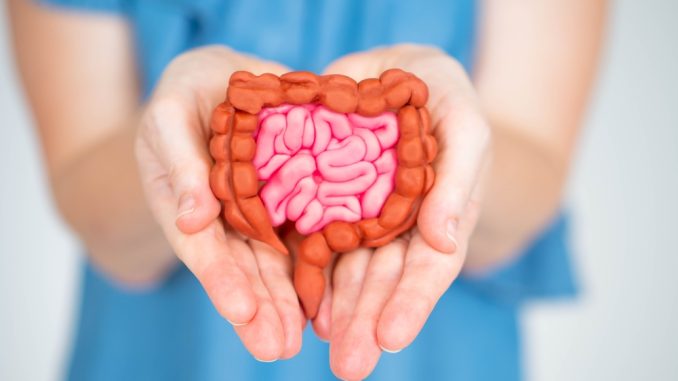
The gut, often referred to as the “second brain,” plays a pivotal role in our overall health and well-being. A healthy gut is essential for proper digestion, nutrient absorption, and even mood regulation. However, many people may not realize that they have an unhealthy gut until they experience troubling symptoms. In this article, we will explore 10 warning signs of an unhealthy gut and provide insights into how to rebuild a healthy one.
1. Digestive Issues:
Frequent digestive problems such as bloating, gas, diarrhea, constipation, or irritable bowel syndrome (IBS) can indicate an imbalanced gut microbiome. These issues suggest that your gut is struggling to process and absorb nutrients effectively.
2. Food Intolerances:
Developing new food sensitivities or intolerances can be a sign of gut health issues. These intolerances may lead to discomfort or allergic reactions after consuming certain foods.
3. Chronic Fatigue:
An unhealthy gut can impact your energy levels. Persistent fatigue or a lack of energy, even after a good night’s sleep, can be attributed to a gut that is not absorbing nutrients optimally.
4. Frequent Infections:
A weakened immune system can result from an imbalanced gut. Frequent colds, infections, or illnesses may indicate that your gut is not effectively defending against pathogens.
5. Mood Swings and Anxiety:
The gut-brain connection is strong, and an unhealthy gut can contribute to mood swings, anxiety, and even depression. The gut produces neurotransmitters like serotonin, which play a crucial role in regulating mood.
6. Skin Issues:
Conditions like acne, eczema, or rosacea may be linked to gut health. An imbalanced gut can lead to inflammation, which can manifest as skin issues.
7. Unexplained Weight Changes:
Sudden weight loss or weight gain without any changes in diet or exercise can be a sign of gut issues. An unhealthy gut can affect the absorption of nutrients and impact your metabolism.
8. Autoimmune Conditions:
Autoimmune diseases, where the immune system attacks the body’s own cells, are often linked to gut health. Conditions like rheumatoid arthritis, lupus, or celiac disease may be exacerbated by gut imbalances.
9. Chronic Bad Breath:
Persistent bad breath, even with good oral hygiene, can be an indication of an unhealthy gut. Digestive issues and imbalances in the gut microbiome can contribute to foul-smelling breath.
10. Sleep Disturbances:
An unhealthy gut can affect sleep quality. Difficulty falling asleep, staying asleep, or experiencing restless nights may be related to gut health.
How to Build a Healthy Gut:
Now that you’re aware of the warning signs, here are some strategies to help rebuild a healthy gut:
1. Diet:
- Incorporate a diverse range of fiber-rich foods like fruits, vegetables, and whole grains.
- Consume fermented foods like yogurt, kefir, sauerkraut, and kimchi to introduce beneficial probiotics.
- Limit sugar and processed foods, which can disrupt the gut microbiome.
2. Probiotics:
Consider taking probiotic supplements to introduce beneficial bacteria into your gut.
3. Prebiotics:
Prebiotic foods like garlic, onions, leeks, and asparagus can help feed the beneficial bacteria in your gut.
4. Hydration:
Stay well-hydrated to support digestion and overall gut health.
5. Stress Management:
Practice stress-reduction techniques like meditation, yoga, or deep breathing to alleviate the impact of stress on your gut.
6. Sleep:
Prioritize quality sleep, as it plays a vital role in gut health and overall well-being.
7. Antibiotic Use:
Use antibiotics only when necessary, as they can disrupt the balance of gut bacteria.
8. Seek Professional Help:
If you suspect severe gut issues, consult a healthcare professional or a registered dietitian for personalized guidance and treatment options.
Conclusion:
Your gut health is a fundamental component of your overall well-being. Recognizing the warning signs of an unhealthy gut is the first step toward taking action to restore its balance. By adopting a gut-friendly diet, incorporating probiotics and prebiotics, managing stress, and seeking professional guidance when needed, you can build and maintain a healthy gut, leading to improved digestion, better mood, and enhanced overall health.
Share this:
- Click to share on Facebook (Opens in new window)
- Click to share on Twitter (Opens in new window)
- Click to share on WhatsApp (Opens in new window)
- Click to share on Reddit (Opens in new window)
- Click to share on Telegram (Opens in new window)
- Click to share on Pinterest (Opens in new window)
- Click to share on LinkedIn (Opens in new window)